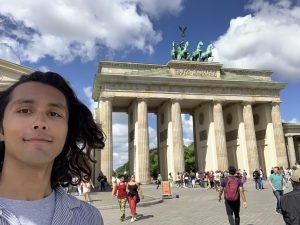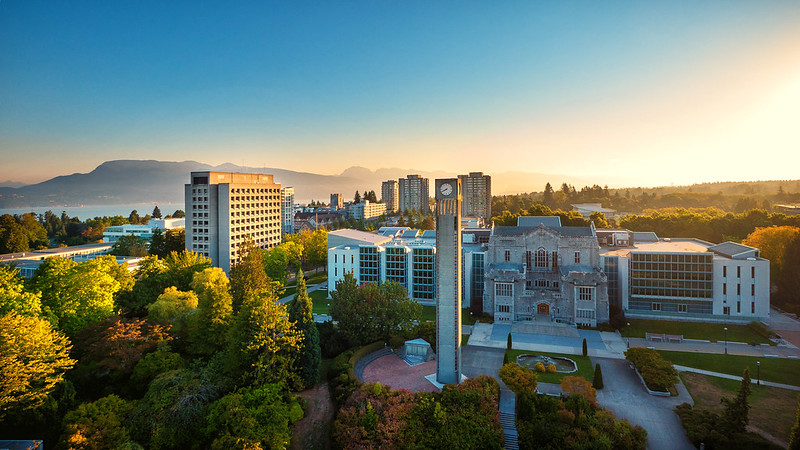Ben Marquard is a student in the University of British Columbia School of Kinesiology, entering into his fifth year of studies this September. While his interests and future career goals lie mainly in his current field of study, he has supplemented his education with studies in German, as language studies are a newfound interest for him. Aside from schooling, Ben spends time working as a lifeguard and swim instructor in the West Point Grey community in which he lives, and is interested in aquatic sports, exploring Vancouver on his bike, and travelling.
Ben is currently on exchange in Germany via the German Academic Exchange Service (DAAD). To learn more about international study or research experiences available to UBC students in Austria, Germany and Switzerland, click here.


Ben Marquard: During my stay in Germany, I will be living with a host family and studying the German language and culture in an immersive setting thanks to funding that I’ve received from the DAAD.
CENES: What motivated you to apply for DAAD funding?
BM: I was motivated to apply for this opportunity by faculty at UBC who encouraged me, as well as my peers, to apply. Additionally, it simply sounded like an amazing opportunity. I am passionate about travelling and have a newfound interest in language learning and other cultures. The funding that the DAAD provides seemed like an opportunity that I simply couldn’t miss out on at this point in my life.
CENES: How did you find the application process?
BM: The application process was surprisingly easy. I would say that anybody who has successfully navigated the UBC application process, particularly the personal essay component of it, is well equipped to apply for a DAAD scholarship.
CENES: What is your experience with UBC’s German program?
BM: My experience with UBC’s German program so far has been excellent. I study kinesiology and as much as I still enjoy my main field of studies, I’ve found a community in UBC’s German department where I feel I am supported. Instructors will know your name and you will have to become comfortable with class participation, but it’s all worth it. I love the fact it is possible to take several classes with the same instructor, as it feels like a continuous learning process, and I never had the feeling that I was losing any momentum.
CENES: What do you find most interesting about German language and/or culture?
BM: I find the German language interesting because despite all of the grammatical rules and conventions that may seem weird to me as a native English speaker at first, it actually makes a lot of sense. That’s not to say that it’s easy, but it feels rewarding when you begin to recognize the patterns and become better, to be able to read, understand, and speak another language, as that is what will eventually permit you to become more connected to the world!
CENES: If you could give any advice to students thinking about applying for these kinds of exchange opportunities, what would you say?
BM: I would say that anybody considering an opportunity such as this should certainly at least try. You never know!
CENES: What is your favourite German word?
BM: While I still have many German words to learn, one of my favourites so far is „bitte”. From having heard it being used in a number of contexts, I’ve learned how versatile it is and it seems it can always be worked into a sentence somehow to make it sound more polite, but maybe that’s just the Canadian in me!


